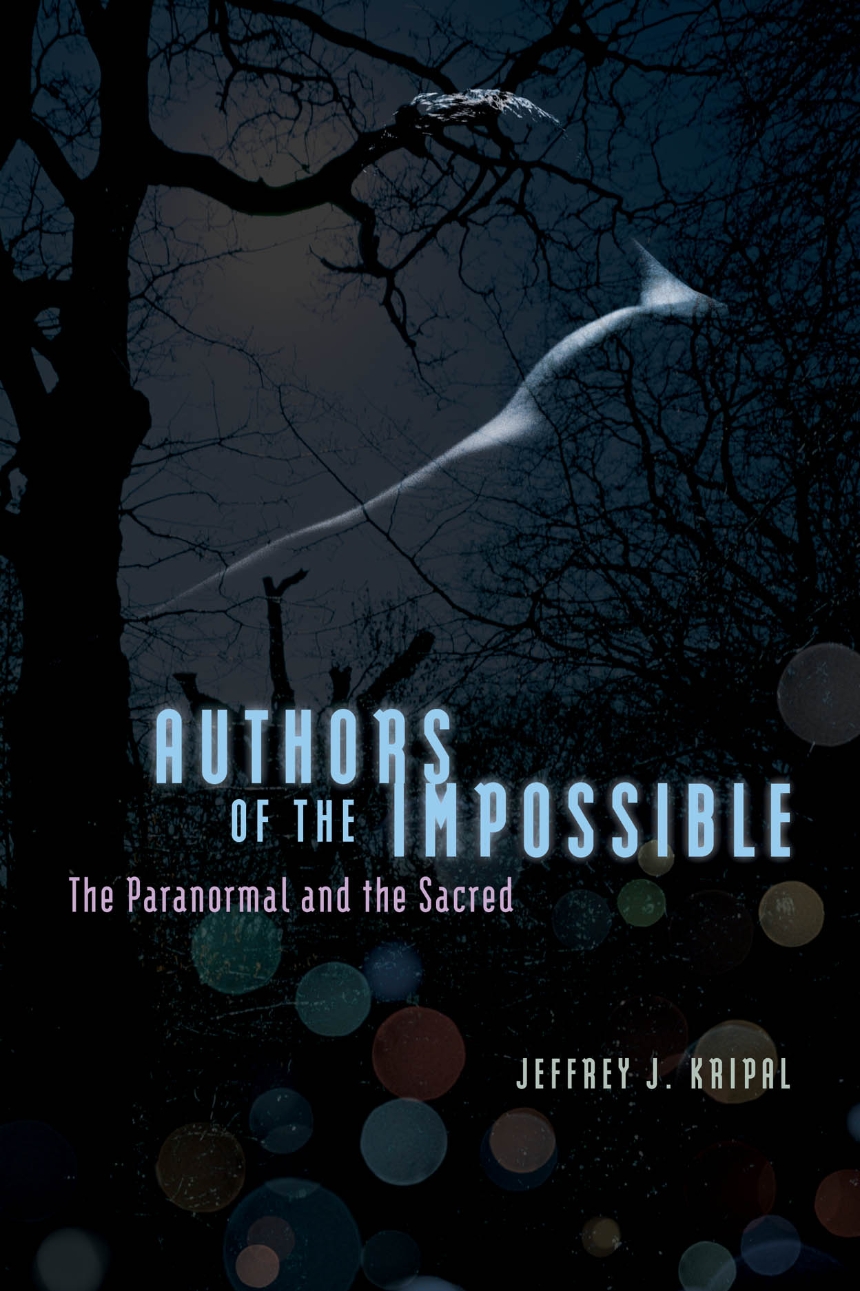Authors of the Impossible
The Paranormal and the Sacred
Most scholars dismiss research into the paranormal as pseudoscience, a frivolous pursuit for the paranoid or gullible. Even historians of religion, whose work naturally attends to events beyond the realm of empirical science, have shown scant interest in the subject. But the history of psychical phenomena, Jeffrey J. Kripal contends, is an untapped source of insight into the sacred and by tracing that history through the last two centuries of Western thought we can see its potential centrality to the critical study of religion.
Kripal grounds his study in the work of four major figures in the history of paranormal research: psychical researcher Frederic Myers; writer and humorist Charles Fort; astronomer, computer scientist, and ufologist Jacques Vallee; and philosopher and sociologist Bertrand Méheust. Through incisive analyses of these thinkers, Kripal ushers the reader into a beguiling world somewhere between fact, fiction, and fraud. The cultural history of telepathy, teleportation, and UFOs; a ghostly love story; the occult dimensions of science fiction; cold war psychic espionage; galactic colonialism; and the intimate relationship between consciousness and culture all come together in Authors of the Impossible, a dazzling and profound look at how the paranormal bridges the sacred and the scientific.
352 pages | 4 halftones | 6 x 9 | © 2010
Philosophy: Philosophy of Religion
Religion: Comparative Studies and History of Religion, Philosophy of Religion, Theology, and Ethics
Reviews
Table of Contents
Acknowledgments
An Impossible Opening: The Magical Politics of Bobby Kennedy
Introduction: Off the Page
Definitions and Broken Lineages
Restoring a Lineage
Authors of the Impossible: The Paranormal as Meaning
The Fantastic Narrative of Western Occulture: The Paranormal as Story
1 The Book as Séance: Frederic Myers and the London Society for Psychical Research
After Life
Myers and the Founding of the S.P.R.
The Subliminal Gothic: The Human as Two
The Supernormal and Evolution: The World as Two
Telepathy: The Communications Technology of the Spirit
The Perfect Insect of the Imaginal
The Telepathic and the Erotic: Myers’s Platonic Speech
Dimensions
2 Scattering the Seeds of a Super-Story: Charles Fort and the Fantastic Narrative of Western Occulture
The Parable of the Peaches: Fort’s Mischievous Monistic Life
Collecting and Classifying the Data of the Damned: Fort’s Comparative Method
The Three Eras or Dominants: Fort’s Philosophy of History
The Philosophy of the Hyphen: Fort’s Dialectical Monism
Galactic Colonialism: Fort’s Science Mysticism and Dark Mythology
Evolution, Wild Talents, and the Poltergeist Girls: Fort’s Magical Anthropology
3 The Future Technology of Folklore: Jacques Vallee and the UFO Phenomenon
Forbidden Science (1957–69)
Passport to Magonia: From Folklore to Flying Saucers (1969)
The Invisible College (1975)
The Present Technology of Folklore: Computer Technology and
Remote Viewing in the Psychic Underground
The Alien Contact Trilogy and the Mature Multiverse Gnosis
Sub Rosa: The Three Secrets
The Hermeneutics of Light: The Cave Become Window
4 Returning the Human Sciences to Consciousness: Bertrand Méheust and the Sociology of the Impossible
A Double Premise
Méheust and the Master
Science Fiction and Flying Saucers
The Challenge of the Magnetic and the Shock of the Psychical
“If Only One of These Facts . . .”: The Impossible Case of Alexis Didier
The Collective Mind: Bateson, De Martino, Vallee, and Jung
Agent X: Projection Theory Turned Back on Itself
Conclusion: Back on the Page
The Eclipse of the Sacred and the Psyche in Modern Oblivion
Consciousness, Culture, and Cognition: The Fantastic Structure of the Mind-Brain
From Realization to Authorization: Toward a Hermeneutics of the Impossible
Dimensions
Impossible (Dis)Closings: Two Youthful Encounters
Required Reading (That Is Never Read ): A Select Annotated Bibliography
Some More Damned Anecnotes
Index
